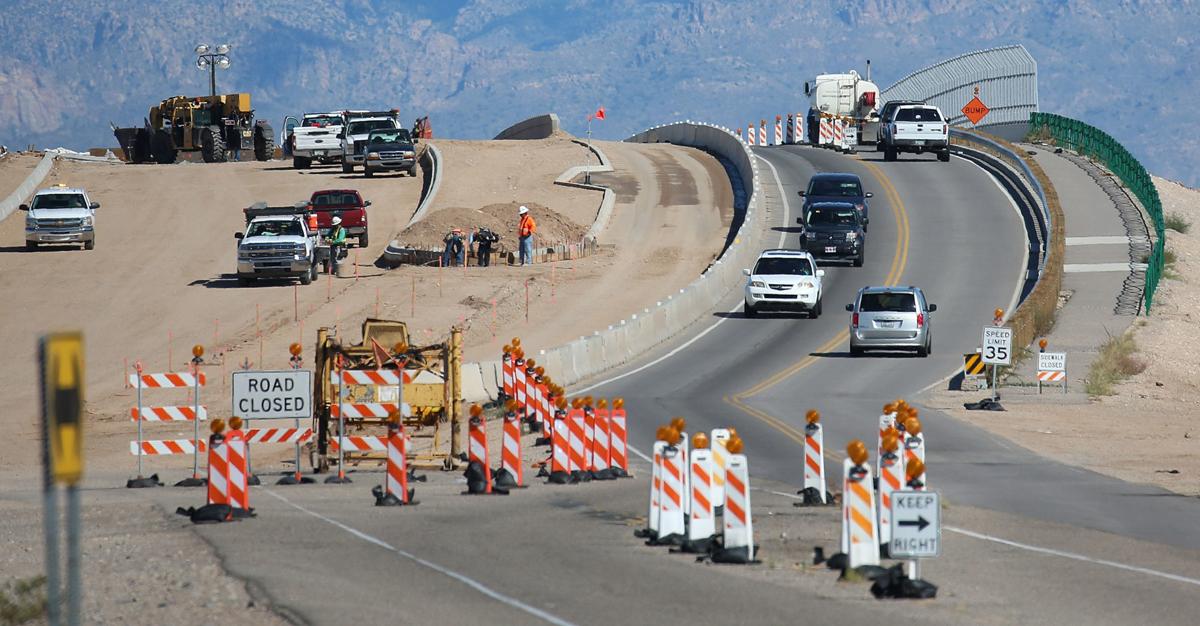A proposal to repair roads in unincorporated areas of Pima County by collecting taxes from residents living elsewhere across the Tucson area is under fire.
The proposal, pitched by Pima County Administrator Chuck Huckelberry, would use money in the general fund — specifically property taxes — to fix the county roads.
The move is a departure from a series of now-failed proposals offered by Huckelberry to take tax dollars collected countywide and spread them evenly throughout Pima County for road repairs.
Under the new proposal, residents in the city of Tucson as well as smaller towns like Oro Valley and Marana would pay taxes to fix regional roadways in the county.
County roads where 40 percent or more of traffic comes from city or town residents were targeted for the proposal, Huckelberry said.
The proposal also added “gateway roads leading to amenities of regional and national significance” to the list, citing that locals and tourists are contributing their tax dollars by paying bed, restaurant and sales taxes at these attractions. The nine-page list of projects, part of the memo authored by Huckelberry, totals over $53.8 million.
It is unclear how many might be included in the county budget next year, or what impact the proposal would have on other county programs that rely on money from the county’s general fund.
Pima County Supervisor Sharon Bronson says the feedback to her office has been overwhelmingly critical.
“We’re getting a lot of negative feedback,” Bronson said, with most phone calls concerned about the equity of the proposal for city residents.
Very few projects listed in the memo to the county supervisors are in Bronson’s district, which includes large patches of rural towns including Ajo, Arivaca and Amado.
While she has significant reservations about Huckelberry’s proposal, Bronson said there are few options left for the county.
“It is not the most equitable solution, but we are running out of solutions,” Bronson said.
Supervisor Richard Elias, whose district includes large portions of the city of Tucson, also has reservations about Huckelberry’s proposal.
County Supervisor Steve Christy disagreed, saying he supports the broad strokes of Huckelberry’s proposal — and noting that it is equitable.
If nearly half of the traffic on these roads comes from city residents, then their tax dollars should go to fixing those county roads, he reasons.
The plan from the county administrator could split the supervisors, not along party lines, but pitting those who have large constituencies in unincorporated areas like Christy versus those who do not, like Elias.
At least one member of the Tucson City Council has already publicly rejected the idea, with Councilman Steve Kozachik calling it “one-half of a good idea.”
“I understand the county’s frustrations at having been pummeled in their bond election,” Kozachik wrote in his newsletter. “But a proposal like theirs does not seem like a step in a positive direction.”
In 2018, voters rejected a $430 million bond proposal known as Proposition 463 to fix roads throughout Pima County.
Kozachik suggested in his weekly newsletter that if a majority of the Board of Supervisors back Huckelberry’s proposal, the city could respond by putting up toll booths into the city of Tucson.
The supervisors are not expected to discuss the proposal immediately, although it will be part of public budget discussions for next year’s fiscal budget, which will be released in the next few months.
The fiscal year starts on July 1.





